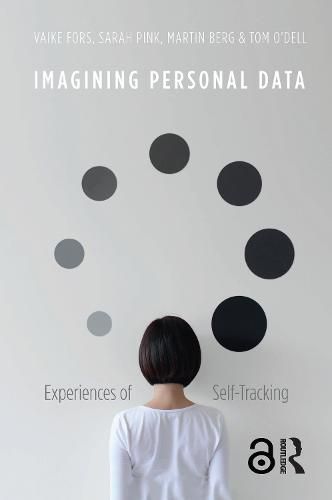Readings Newsletter
Become a Readings Member to make your shopping experience even easier.
Sign in or sign up for free!
You’re not far away from qualifying for FREE standard shipping within Australia
You’ve qualified for FREE standard shipping within Australia
The cart is loading…






Digital self-tracking devices and data have become normal elements of everyday life. Imagining Personal Data examines the implications of the rise of body monitoring and digital self-tracking for how we inhabit, experience and imagine our everyday worlds and futures. Through a focus on how it feels to live in environments where data is emergent, present and characterized by a sense of uncertainty, the authors argue for a new interdisciplinary approach to understanding the implications of self-tracking, which attends to its past, present and possible future. Building on social science approaches, the book accounts for the concerns of scholars working in design, philosophy and human-computer interaction. It problematizes the body and senses in relation to data and tracking devices, presents an accessible analytical account of the sensory and affective experiences of self-tracking, and questions the status of big data. In doing so it proposes an agenda for future research and design that puts people at its centre.
$9.00 standard shipping within Australia
FREE standard shipping within Australia for orders over $100.00
Express & International shipping calculated at checkout
Digital self-tracking devices and data have become normal elements of everyday life. Imagining Personal Data examines the implications of the rise of body monitoring and digital self-tracking for how we inhabit, experience and imagine our everyday worlds and futures. Through a focus on how it feels to live in environments where data is emergent, present and characterized by a sense of uncertainty, the authors argue for a new interdisciplinary approach to understanding the implications of self-tracking, which attends to its past, present and possible future. Building on social science approaches, the book accounts for the concerns of scholars working in design, philosophy and human-computer interaction. It problematizes the body and senses in relation to data and tracking devices, presents an accessible analytical account of the sensory and affective experiences of self-tracking, and questions the status of big data. In doing so it proposes an agenda for future research and design that puts people at its centre.